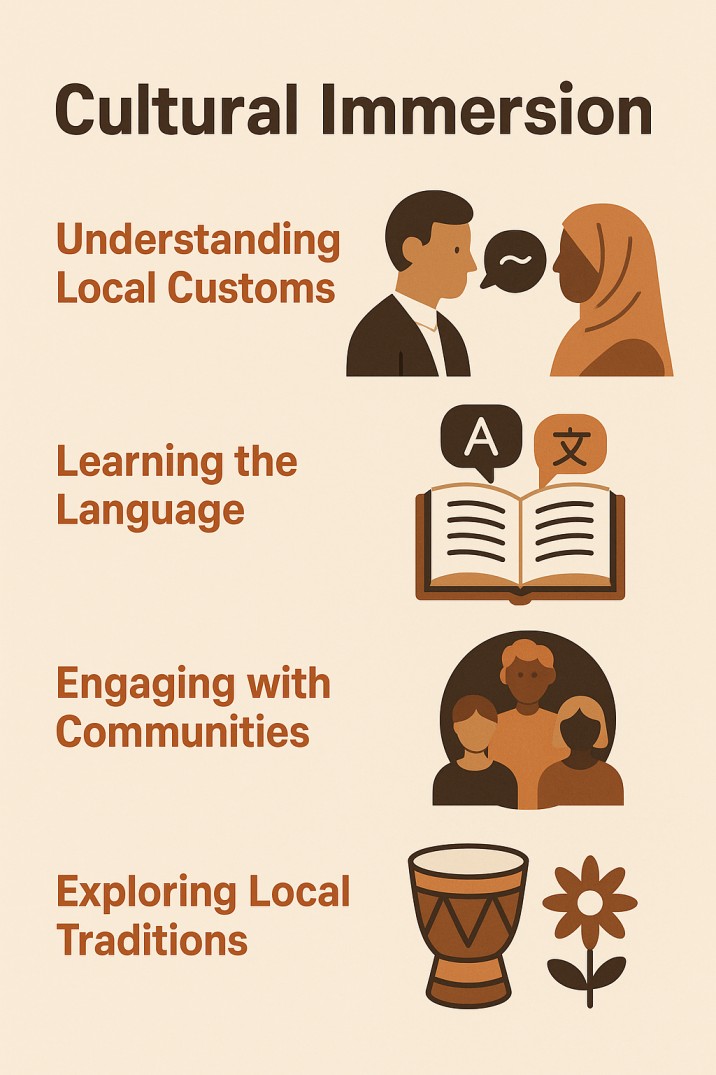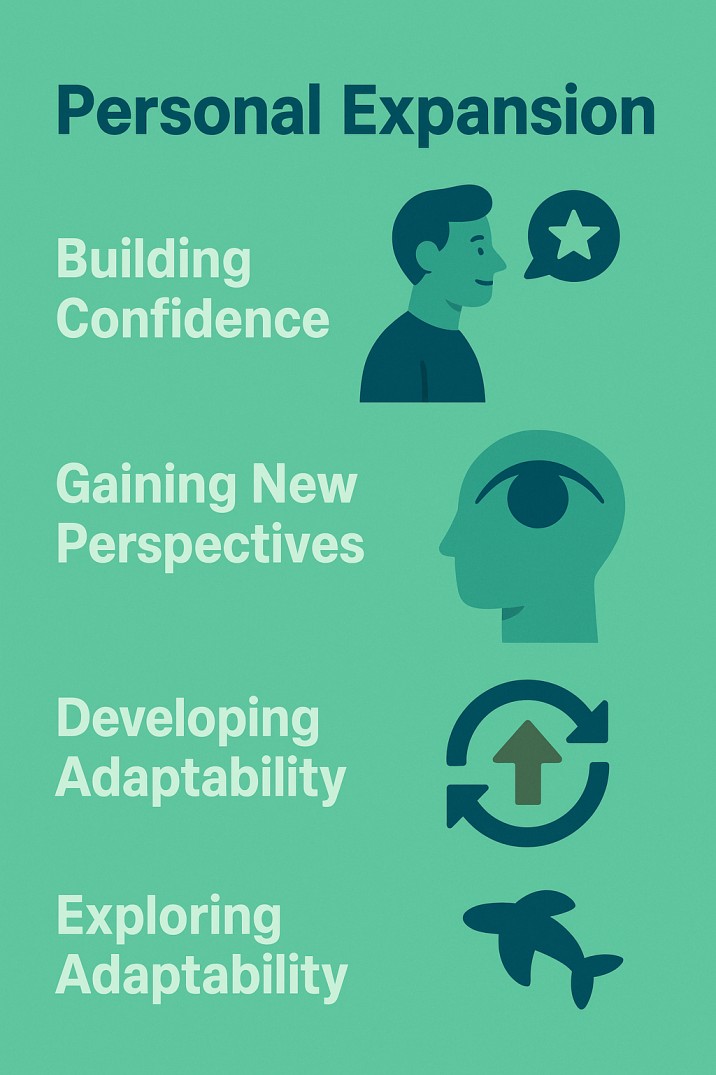For many Americans, the idea of working overseas conjures up images of vibrant cities, exotic foods, and rich cultural experiences. But beyond the allure of travel lies a deeper opportunity—transforming your life and career through global mobility. The rise in overseas jobs for Americans is not just a passing trend; it’s a seismic shift in how professionals view career development, lifestyle design, and financial freedom.
A New Era of Opportunity
Beyond Borders: The Globalization of Work
Relocating for work was once the domain of a select few—government officials, corporate executives, and military service members. For decades, these were the professions where international assignments came standard. But that world has evolved.
Today, overseas jobs for Americans are no longer limited to elite circles. A growing number of professionals across industries—whether educators, engineers, healthcare providers, or hospitality workers—are finding fulfilling careers abroad. The notion of working internationally has transformed from a rare privilege into a viable, mainstream career path.
Digital Mobility and the Remote Revolution
One of the biggest enablers of this shift has been the rise of digital technology. With cloud-based tools, real-time collaboration platforms, and cross-border connectivity, the digital age has essentially dissolved traditional geographical boundaries. You no longer have to be stationed in a corporate outpost to contribute meaningfully to a global organization.
Remote work has empowered Americans to live in one country and work for a company based in another—or multiple others. This flexibility allows them to balance career growth with personal aspirations, such as travel, cultural exposure, or lifestyle changes.
Cross-Cultural Skills in Demand
Another driver of this global workforce trend is the demand for cross-cultural competence. Employers increasingly value candidates who can navigate diverse environments, collaborate across time zones, and communicate effectively across cultures. Working abroad isn’t just about earning a paycheck—it’s a form of immersive professional development.
Americans who take jobs overseas often gain an edge by developing soft skills that domestic roles can’t always offer: cultural intelligence, multilingual communication, adaptability, and broader strategic thinking.
A Spectrum of Opportunities
From teaching English in rural Thailand to managing humanitarian logistics in Africa, from tech consulting in Berlin to culinary arts in Dubai, the range of overseas jobs for Americans has never been broader. Even non-traditional sectors like freelancing, digital nomadism, and short-term contracts have opened up a wealth of new pathways.
This era marks not just a shift in where Americans work—but in how they define success, balance, and purpose in their careers.
Why Americans Are Moving Abroad to Work
So, why are so many Americans opting for careers abroad? The answer lies in a compelling mix of economic, personal, and professional incentives. On the economic front, many overseas jobs for Americans come with competitive salaries, tax advantages, or even free housing and travel stipends.
Professional Growth Beyond Borders
Professionally, overseas experience is often seen as a golden badge on a résumé. It signals adaptability, cross-cultural competency, and a willingness to challenge oneself. For younger professionals, it can be a stepping stone to leadership roles. For more seasoned workers, it might represent the pinnacle of a career shaped by curiosity and bold choices.
Cultural Immersion and Personal Expansion

Culturally, the personal growth that accompanies working overseas is difficult to overstate. Immersing yourself in another way of life forces you to reassess assumptions, expand your worldview, and develop resilience. Many Americans who take overseas jobs end up staying abroad long-term, building families, launching businesses, or becoming dual citizens.

Navigating the Global Job Market
Despite all these benefits, navigating the overseas job market requires more than just wanderlust. Research is critical. Understanding visa requirements, employment laws, language barriers, and cultural etiquette is essential to making a smooth transition. Many Americans begin their overseas job hunt by leveraging networks such as alumni groups, international recruiters, or expat communities.
Sectors in Demand: Teaching, Healthcare, Tech, and More
One increasingly popular path is teaching English abroad. With a TEFL (Teaching English as a Foreign Language) certification, Americans can find positions in Asia, Europe, the Middle East, and Latin America. Similarly, healthcare professionals are in high demand across borders. For those in tech, multinational companies and startups alike are seeking American expertise to fuel innovation and digital transformation.
Service-Oriented Roles with Global Reach
Humanitarian Careers Abroad
For Americans driven by purpose, humanitarian work opens doors to deeply impactful careers overseas. Far from desk-bound routines, these roles are boots-on-the-ground experiences in regions that urgently need help—whether recovering from natural disasters, navigating public health crises, or rebuilding post-conflict communities.
Non-Governmental Organizations (NGOs), the United Nations, and international aid agencies are constantly recruiting U.S. professionals to spearhead operations, manage logistics, oversee volunteer programs, and develop sustainable solutions. These overseas jobs for Americans aren’t just jobs—they are missions that align professional skills with global betterment.
Blending Service with Cultural Adventure
These roles offer more than just a paycheck. They offer immersion in places and problems that require empathy, resilience, and adaptability. You might find yourself coordinating health interventions in Sub-Saharan Africa, teaching refugee children in Jordan, or helping build water infrastructure in rural South America.
The cultural exposure gained from these experiences can be as transformative as the work itself. Living and working alongside local communities fosters a deeper appreciation of global perspectives, while challenging comfort zones and broadening worldviews.
Building Global Leadership Skills
Many professionals who take this path return home—or stay abroad—with stronger leadership credentials. They’ve learned to manage teams across languages and cultures, negotiate under pressure, and deliver results with limited resources. These are the kind of transferable skills that employers across all sectors now value.
Furthermore, overseas jobs for Americans in the nonprofit and development world frequently lead to long-term careers in global consulting, international relations, diplomacy, and sustainability.
Changing Lives—Including Your Own
Ultimately, service-oriented work is a two-way street. While Americans in these roles often change lives through their contributions, the most unexpected transformation may be their own. Exposure to human resilience, community strength, and cultural richness can shift not only how they work—but how they live.
The Reality Check: Challenges and Adjustments
Of course, it’s not all glamour and excitement. Living and working abroad can be isolating at times, especially when navigating homesickness, bureaucracy, or unfamiliar customs. But most Americans who pursue this path agree that the rewards far outweigh the challenges.
The Remote Work Revolution
The remote work boom has added a new layer to overseas employment. More companies now offer location-independent roles, enabling Americans to live abroad while technically working for a U.S.-based company. As a result, overseas jobs for Americans now include remote roles in marketing, software development, consulting, and design.
Logistics, Taxes, and Legal Matters

It’s also worth noting the legal and financial complexities that come with working abroad. Double taxation, work permits, and healthcare access are all important considerations. Fortunately, many countries have tax treaties with the U.S. to prevent double taxation, and countless online forums and services can help Americans navigate these logistics.
Overseas Careers Across Life Stages
For younger generations burdened by student loans and stagnant wages, overseas work can offer both financial relief and career acceleration. For mid-career professionals, it can be a refreshing pivot. And for retirees, part-time overseas roles or consultancy gigs can provide income and purpose in a beautiful new setting.
More Than a Job—A Lifestyle
Ultimately, the decision to pursue overseas jobs for Americans is more than just a professional choice—it’s a lifestyle transformation. Whether you envision teaching in Seoul, managing tech projects in Berlin, or consulting in Nairobi, the path is wide open—and waiting.
The Time to Go is Now
In a world that’s never been more interconnected, staying in one place might be the riskier choice. For those bold enough to cross borders, overseas jobs for Americans offer not just a paycheck, but a passport to an extraordinary life.
Andrea Balint is a writer and researcher focused on human behavior, workplace psychology, and personal growth. Through her work at CareersMomentum, she explores how mindset, leadership, and emotional intelligence shape modern careers. With a background in communication and HR development, she transforms complex ideas into practical insights that help readers build clarity, confidence, and professional purpose.
